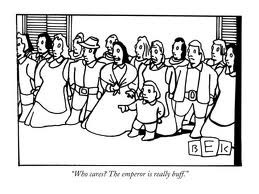thoughtful opinions held loosely…
I don’t typically err on the side of resolutions or listicles outlining a vision for the new year. What actually happens seems more like the art of procrastinating hitting a wall. Once the holidays wrap up, the swirling eddies of “things I will do after the holidays” require a bit of focused attention.
If you run your own company, this is also the time of year that client contracts are renewed and new opportunities start percolating. Don’t spend too much time focusing on collaborations that went a little sour. Even pickles have their place in the pantheon of epicurean delights.
But because I am at a business pivot in more ways than one — I decided to think about what worked, what didn’t, and what time will tell.
The Good…
I sound like a broken record but I can’t stress enough how listening to podcasts influences my daily work life. They point me to what I should be reading, watching, or thinking about. Design thinking requires aligning edges from different industries and creating new outlooks.
I don’t know how you accomplish this if you are viewing everything with a single lens. What works best for me is heading out on trails in the early morning with a few hours of informed listening. I have siri take notes on my apple watch — they are waiting for me on the computer when I get home (and most are decipherable).
I work at the intersection of health policy, economics, and clinical medicine. Here are a few of my favorites. Your mileage may vary but please share any I should know about. I have many others on rotation such as Tim Ferriss, The Drive with Peter Attia, The Economist, Brookings Cafeteria, London School of Economics, and Freakanomics Radio…
Plenary session — a podcast on medicine, oncology, and health policy
<a href="https://medium.com/media/b5245b9ad9863151a8bb0d256563af18/href">https://medium.com/media/b5245b9ad9863151a8bb0d256563af18/href</a>
Library Talks — Live conversations from the New York Public Library, “an eclectic mix of voices and perspectives”
Library Talks by The New York Public Library on Apple Podcasts
The Week in Health Law — Nicolas Terry and his guests discuss the most pressing issues in Health Law & Policy
152. Regulate Now or Regulate Later? Guests, Nathan Cortez, Sharona Hoffman, and Abbe Gluck.
Not so Standard Deviations — Roger Peng and Hilary Parker talk about the latest in data science and data analysis in academia and industry. Roger Peng of the Johns Hopkins Bloomberg School of Public Health, (and teacher of the first Coursera data science course I ever completed) and Hilary Parker of Stitch Fix.
Not So Standard Deviations: 70 - The Smoothie Happens Everyday
Design Matters — The world’s first podcast about design and an inquiry into the broader world of creative culture through wide-ranging conversations with designers, writers, artists, curators, musicians, and other luminaries of contemporary thought
I returned to coding this year. The key to a successful career in data is automation. Learning to work with APIs in R and Python is probably the most useful hack I integrated this year. I also started a certification in Applied Data Science through a partnered certificate program at Columbia University School of Engineering.
The Bad…
Not actually bad. I mean, don’t we learn along the way regardless of outcomes? Here is the thing. Once you establish an objective to be data informed and abide by a professional code of conduct there are certain types of clients you can’t afford to engage. For example, clients that know what they want the data to say before they have even formulated a question.
In my decades long career as a medical writer I wrote what I was told. Here is the outline — your job was to put the meat on the bones. Now that healthcare is nodding towards value, this is problematic. The data means different things to different stakeholders and often what supports one opinion bubbles to the surface while opposing views are eliminated from analyses.
The Ugly…
In the memorable words of Geoffrey Bowker, informatics professor at the University of California, Irvine, “Raw data is both an oxymoron and a bad idea; to the contrary, data should be cooked with care.” “Raw” carries a sense of natural or untouched, while “cooked” suggests the result of cognitive processes.
But data is always the product of cognitive, cultural, and institutional processes that determine what to collect and how to collect it. In this sense, “raw data” is indeed a contradiction in terms. In the ordinary use of the term “raw data,” “raw” signifies that no processing was performed following data collection, but the term obscures the various forms of processing that necessarily occur before data collection. — Why Data Is Never Raw: On the seductive myth of information free of human judgment Nick Barrowman
This is where a good scientist can make a huge difference. We need subject matter expertise, awareness of where to find multiple sources of data to avoid the Elvis Toast phenomenon, and a wide variety of tools (statistics, common sense, programming, visualization) to select the precise plan of action to answer a well-articulated question.
Collaborative partnerships often require a sort of Oath of Emerta. You may find yourself in the authoritative position to prevent or solve a conflict potentially aligned with poor data stewardship, p-hacking, or low level outcomes. Always be willing to learn and accept new Bayesian insights but be credible in how they are derived and don’t be afraid to point to the naked emperor.





